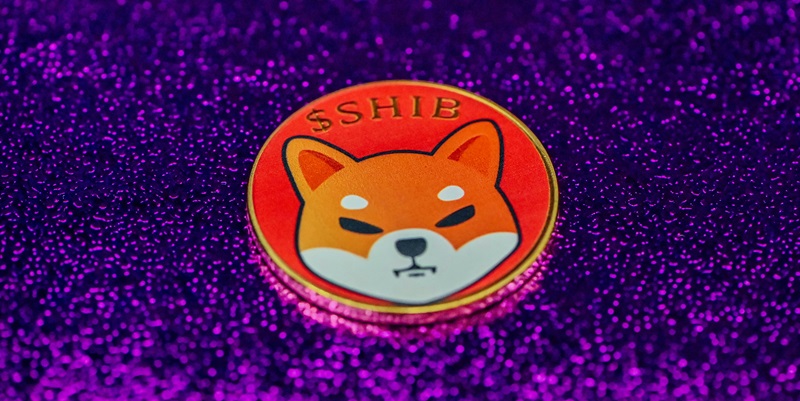The Shiba Inu team is gearing up to unveil its much-anticipated decentralized autonomous organization (DAO), a move that underscores the project’s commitment to decentralization and community-driven governance. Central to this initiative are Leash token holders, who are poised to play a critical role in maintaining order and protecting the community’s core values. With Shiba Inu’s focus on ethical governance and environmental responsibility, the new DAO aims to create a balanced and transparent environment where the interests of the entire community are prioritized.
The Role of Leash in the DAO Structure
Leash token holders carry significant responsibilities within the Shiba Inu DAO. With just 107,000 tokens in existence, each Leash holder is entrusted with safeguarding the ecosystem’s integrity. These holders will have the authority to resolve disputes, ensure transparency, and uphold ethical governance. Shytoshi Kusama, the anonymous leader of the Shiba Inu team, emphasized the importance of Leash holders on his X handle, describing them as custodians of the community’s values.
The emphasis on ethical governance is a cornerstone of the Shiba Inu project. By decentralizing decision-making power to Leash token holders, the team aims to create a fair and transparent environment where community interests are prioritized. This approach not only bolsters trust within the community but also sets a precedent for responsible governance in the broader crypto space. The responsibility given to Leash holders highlights the DAO’s vision of a community-led ecosystem that thrives on collective wisdom and ethical stewardship.
Governance Model and Token Allocation
The Shiba Inu DAO’s governance model is meticulously designed to distribute responsibilities across four main tokens: SHIB, BONE, Leash, and Treat. Each token governs a specific segment of the ecosystem, ensuring a balanced approach to decision-making. SHIB governs the community, enabling holders to vote on community values and direct donations. BONE powers the technologies within the community and serves as the gas fee for Shibarium, allowing holders to have a say in new innovations. Leash is pivotal for protecting the community, supporting transparency, fair treatment, and voting on sustainability initiatives. Treat empowers community projects and governance.
By decentralizing governance responsibilities among these four tokens, Shiba Inu aims to ensure that all members of the community have a voice in the DAO. This structure fosters an inclusive and equitable decision-making environment, aligning with the project’s ethos of community empowerment. The careful allocation of governance duties reflects the team’s dedication to creating a robust and participatory governance structure, ensuring that each token plays a distinctive yet complementary role in the ecosystem.
Community’s Role and Reaction
Shiba Inu’s marketing lead, Lucie, recently highlighted the imminent launch of the DAO, describing it as a significant milestone towards true decentralization. Participation in the governance process is open to all token holders, embedding the principles of decentralization into the Shiba Inu ecosystem’s operational framework. This inclusivity ensures that every community member can contribute to the project’s future direction, reinforcing the values of collective decision-making and shared responsibility.
The community’s reaction to these developments has been overwhelmingly positive. Influential crypto commentator ALTSTEIN TRADE likened Leash holders to the guiding force of the Shiba Inu ecosystem, underscoring their crucial role in maintaining order and promoting ethical governance. This robust community support suggests strong belief in Shiba Inu’s vision for a decentralized future, bolstering confidence in the DAO’s potential success. The optimistic sentiment from both community members and crypto commentators highlights the widespread excitement and anticipation surrounding the DAO’s launch.
Ethical Governance and Environmental Responsibility
A recurring theme in the Shiba Inu DAO is ethical governance, especially through the lens of the Leash token. With its limited supply, Leash is not just a utility token but a symbol of the ethical foundations upon which the Shiba Inu ecosystem aims to build its future. Leash holders are expected to lead by example, ensuring fair play and equity within the ecosystem. The emphasis on transparency and ethical behavior is core to the DAO’s mission, reinforcing the principles of fairness and accountability.
The focus on ethical governance extends to environmental responsibility, with Leash holders having the power to vote on sustainability initiatives. By integrating environmental concerns into the DAO’s framework, the Shiba Inu team is taking proactive steps to align with broader societal goals, reflecting a holistic approach to governance. This commitment to environmental sustainability underscores the project’s dedication to responsible and forward-thinking practices, setting a positive example for other crypto communities to follow.
Innovations and Future Prospects
The Shiba Inu team is gearing up for the launch of its eagerly awaited decentralized autonomous organization (DAO), signaling a strong commitment to decentralization and community-driven governance. This initiative places Leash token holders at the forefront, giving them a crucial role in upholding order and safeguarding the community’s core values. Shiba Inu, with its focus on ethical governance and environmental responsibility, aims to foster a balanced and transparent ecosystem through the new DAO. This platform intends to ensure that the collective interests of the entire community are given precedence.
The introduction of this DAO is a significant milestone that highlights Shiba Inu’s dedication to a decentralized and community-centric model. By empowering members with governance rights, the project aspires to cultivate a fair and egalitarian environment, enhancing overall trust and collaboration among users. This move is expected to align with the broader trend of blockchain projects emphasizing decentralized governance structures, thereby reinforcing Shiba Inu’s position as a leader in the crypto space.

